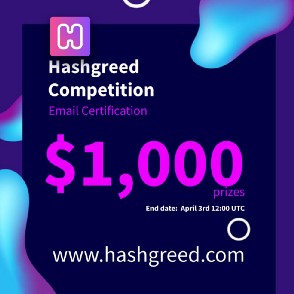Hashgreed, an NFT Marketplace, multipurpose NFT and super dapp platform under the Krosscoin Ecosystem has secured over $1 million in funding to help scale operations across Africa.
The platform is programmed to assist both individuals and businesses having an experience with web3 solutions for creative, commerce and asset tokenization.
Hashgreed has created a platform called Hashdealz, a web3-powered e-commerce platform, where users can create, sell and buy NFTs, own Fractional NFTs, hire and pay freelances in cryptocurrencies and stablecoins, send more to other countries via stablecoins, amongst others.
The platform has also allowed Nigerians to access NFTs via its stablecoin called $HASH. They also plan to release stable coins for other African countries.
The CEO and founder of Vinekross Technology, the parent company of Krosscoin Ecosystem, Efosa Ighodaro, has stated that the funding received will enable Vinekross to strive to get registered with the Nigeria Securities and Exchange Commission (SEC) as it prepares for an ICO event which is scheduled to come up later this month. In a statement, he said:
“Vinekross is determined to be the largest native blockchain ecosystem and community in Africa, through very safe and sound tokenomics and governance where all outstanding tokens are governed by the KSS holders. We would like to be a company trading on the Nigerian Stock Exchange in a couple of years”.

NFT and its benefits to the African economy
NFT, which means Non-fungible tokens, is one recent phenomenon that took the world by storm when an NFT sale was made worth $69 million in march 2021. This huge sale made people put on their reading glasses and began intense research on anything NFTs.
NFTs have become a new type of digital asset, and it has been the major drive which has increased the value of NFTs. Here are the benefits of NFTs:
Read: NFT Marketplace For Creatives, Ayoken Bags $1.4M To Help Users Grow Their Revenue
They foster market efficiency
This is the most important benefit of NFTs as it makes the market more efficient by converting physical assets to digital ones, which can streamline processes, eliminate the need for middlemen or intermediaries, enhance the supply chains, and increase security.
In the art world, arts and sculptors can access the audience directly, eliminating the cost of intermediaries and cumbersome transactions. The digitization of artwork also improves the authentication process, further streamlining transactions and reducing transaction costs.
The use of NFTs has gone beyond the marketplace as they can be an efficient way to manage and control sensitive data and keep records of individuals and organizations.
The use of physical passports at airports means that they need to be produced at the point of entry and departure, but by converting them to NFTs, we could greatly reduce the stress involved in travelling processes and identification of individuals, which could cut the cost involved and save time.
They can be used to fractionise ownership of Physical assets:
When in its physical form, it is very easy to fractionize items such as jewellery, artwork and real estate, but when provided in its digitized version, it is easier to divide among multiple owners without complaint.
The digitisation of physical products can greatly widen the market for those assets, leading to liquidity and higher prices. For individuals, it can increase how financial portfolios are constructed, allowing for greater diversification and more precise position sizing.
The technology used in NFTs is one of the safest ever
NFTs are created through Blockchain technology, which is used to store information in a way that makes hacking, altering and deleting impossible. In simple words, a blockchain is a ledger of transactions which is duplicated and distributed across an entire network of participants.
Once an NFT is created, it is stored on the blockchain while possessing distinct records of originality and chain-of ownership, which prevents them from falling into the wrong hands or being stolen. Once the data of an NFT is added to the blockchain, it can not be changed or deleted, which means that the scarcity and originality of each NFT are kept, and this brings about trust, which is lacking in most marketplaces.
They can provide diversification benefits to an investment portfolio
Since NFTs are different from traditional investments such as bonds and stocks, they provide us with distinctive qualities and offer benefits that the world is still exploring.
As we all know, the NFT risk profile differentiates from other traditional assets. Adding NFTs to an investment portfolio could improve efficiency and attain a better balance of risk and return.
NFT and its challenges to the African economy
All advantages must surely have some disadvantages, and NFTs are no better as there are also some risks associated with owning an NFTs:
They are illiquid and volatile
Due to the immature state of NFTs, people who know and trade NFTs are few, which means that when you own an NFTs-it is very hard to sell, especially during distress periods such as the COVID-19 pandemic. This can also imply that their prices can be highly volatile, which means that the prices are not stable.
They do not generate income
Since NFTs are not like traditional assets such as stocks and bonds, they don’t offer any income potential, so their returns are based on price appreciation and are unreliable.
NFTs have proven to be a future investment which would be a major trend, and blockchain technology has sown that it is the safest online ledger to store information.
NFTs have advantages and disadvantages, but the advantages have superseded their counterparts and are on their way to beating traditional investments like stocks and bonds on popularity.




